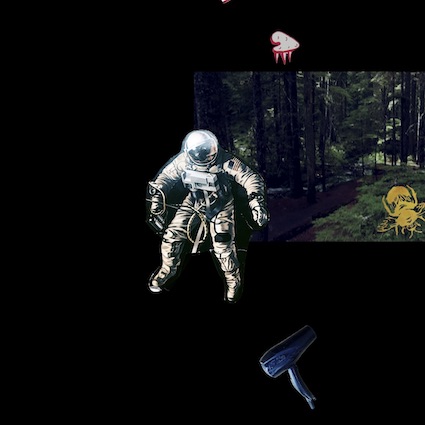Patriarchal structures often exist in the unconscious. Deeply rooted in gene memory, they function as unconscious tendencies that influence choices and behaviors. Boys are often the centre of attention and interest and gain superiority over other individuals because of their biological sex. In many societies this male gender superiority works to the detriment of women and females. There are deep-rooted beliefs, ideas and attitudes about the different value of women and men, about their qualities, talents and abilities. Today in India, China and southern Europe, abortion is often used as a means of sex selection with a preference for the male. Women often adopt these prejudices, even unconsciously, and reflect them through their behavior and preferences in their parental role. These prejudices are reflected on the inherited gestures, often passed on from mother to daughter, which perpetuate racial discrimination. The work \”Satellite Girl\” explores the identity, femininity, and the limitations imposed on girls and women. A central issue is how society often prioritizes boys and men, while girls are relegated to secondary roles. The work also addresses issues of freedom, space, and the search for one\’s personal path. Images from everyday life and pop culture associated with gender enter the frames, indicating the stereotypical view that remains active even today. Girls sometimes remain \”faceless\” through the devaluation of their gender, merely girls in a society where boys have distinct and specific identities reinforced through acceptance and attention. The devaluation of girls strips them of their identity, reducing them to faceless beings, satellites constantly revolving around the primary roles designated for boys. For instance, in the Christian religious system, isn’t the Virgin Mary a satellite in a male/patriarchal deity system? In the work “Satellite Girl,” issues of gender identity, acceptance, or non-acceptance are central and urgent.
Eugenia Grammenou Eugenia Grammenou is a Greek interdisciplinary artist working on various media ranging from performance, video performance and installation, to drawing and writing. She isinterested in the reconstruction of the real, the transformative power of the gaze in issues related to personal and collective memory, identity, construction and de/construction of fe/male identity, natural and built environment. She uses voice, text, narration, bodies, organic beings and inorganic technological constructs that become elements in a score that highlights differentiated perspectives through the transformation and multiplicity of narratives.Her work has been presented in festivals and exhibitions internationally: Bronx River Art Center N.Y. (U.S.A.), Grosso Modo gallery Tel Aviv (Israel), Open Home Performance Festival Helsinki (Finland), Momentum Gallery Krakow (Poland), Videoaction#3 Berlin (Germany), Cine Performance International Festival Buenos Aires (Argentina), Armenian Center for Contemporary Experimental Art (Armenia) etc.Eugenia graduated from the Department of Visual and Applied Arts, School of Fine Arts, Aristotle University of Thessaloniki (AUTh)-2002 and completed the Cultural Organizations Management Master’s Degree Course at The Hellenic Open University-2017, specializing in the social role of the museum. She is currently a Phd researcher at the School of Drama, Faculty of Fine Arts, AUTh, 2019. artist website


